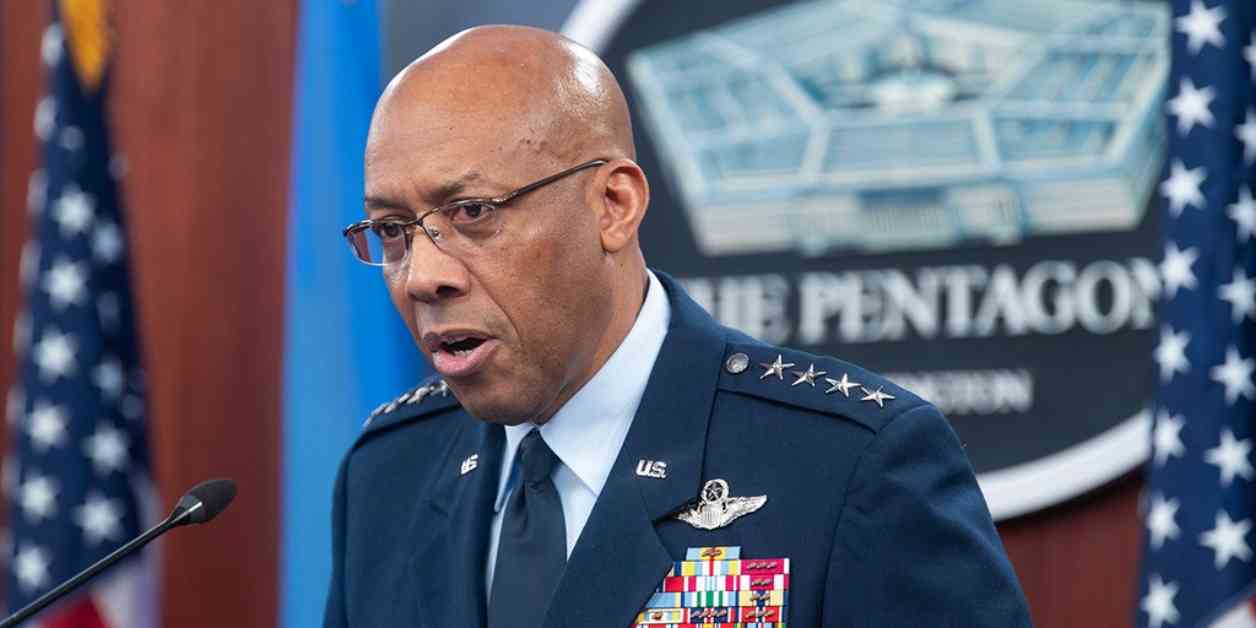Former Joint Chiefs of Staff chairman Air Force Gen. C.Q. Brown recently bid farewell on social media following his dismissal by President Donald Trump. In a poignant post on LinkedIn, Brown reflected on his four-decade military career that began with a simple directive from his father: “Four years in the military will not hurt you.” Little did he know that those four years would evolve into a lifetime of service alongside some of the nation’s finest service members and civilians.
Brown described his tenure as a “distinct honor” and emphasized his focus on warfighting, modernization, and trust during his time as chairman. He expressed confidence in the Joint Force’s commitment to national security and urged his colleagues to remain resolute in their defense of the nation. As only the second Black general to hold the prestigious position of Joint Chiefs chairman, following in the footsteps of the late Gen. Colin Powell, Brown’s departure marks a significant moment in military history.
Trump’s decision to relieve Brown of his duties elicited mixed reactions, with the president himself acknowledging Brown’s decades of service and leadership qualities in a social media post. Despite the abrupt change in leadership, Trump expressed his well wishes for Brown and his family as they navigate this transition period.
Looking ahead, Trump announced his nomination of retired Air Force Lt. Gen. Dan “Razin” Caine as the next chairman of the Joint Chiefs of Staff. Caine, a seasoned F-16 pilot with experience in both active duty and the National Guard, brings a wealth of military expertise to the position. His most recent role as the associate director for military affairs at the CIA underscores his deep understanding of national security issues.
While Caine’s nomination has sparked controversy due to his lack of key assignments typically required for the job, U.S. Code allows for such waivers if deemed necessary in the national interest. As the nation prepares for a new era of military leadership, the selection of Caine as the next chairman signals a strategic shift in the highest echelons of the armed forces.
Expert Perspectives on Military Leadership Transition
Retired military officials and defense experts have weighed in on the recent changes within the Joint Chiefs of Staff, offering insights into the implications of Brown’s departure and Caine’s nomination. According to Gen. John Smith, a former Joint Chiefs chairman, the transition period presents both challenges and opportunities for the military leadership.
“The departure of a seasoned leader like Gen. Brown creates a void that will need to be filled with someone who can command the respect and trust of the entire Joint Force. While Gen. Caine may lack some of the traditional prerequisites for the chairman position, his diverse background in military affairs and intelligence could prove to be an asset in navigating the complex landscape of modern warfare,” Gen. Smith commented.
The Future of Military Leadership in Uncertain Times
As the Joint Chiefs of Staff undergoes a period of transition, the future of military leadership remains uncertain. The selection of Gen. Caine as the next chairman marks a departure from traditional norms, signaling a shift towards a more dynamic and adaptive approach to national security. With global threats evolving rapidly, the incoming leadership will face a myriad of challenges that demand innovative solutions and strategic foresight.
In the words of Gen. C.Q. Brown, “The Joint Force’s commitment to our security has never been more critical.” As the nation navigates uncharted waters in an increasingly complex geopolitical landscape, the role of the Joint Chiefs of Staff in safeguarding national interests has never been more vital. The legacy of Gen. Brown and the future leadership of Gen. Caine underscore the enduring commitment of the U.S. military to protect and defend the nation against all threats, foreign and domestic.

